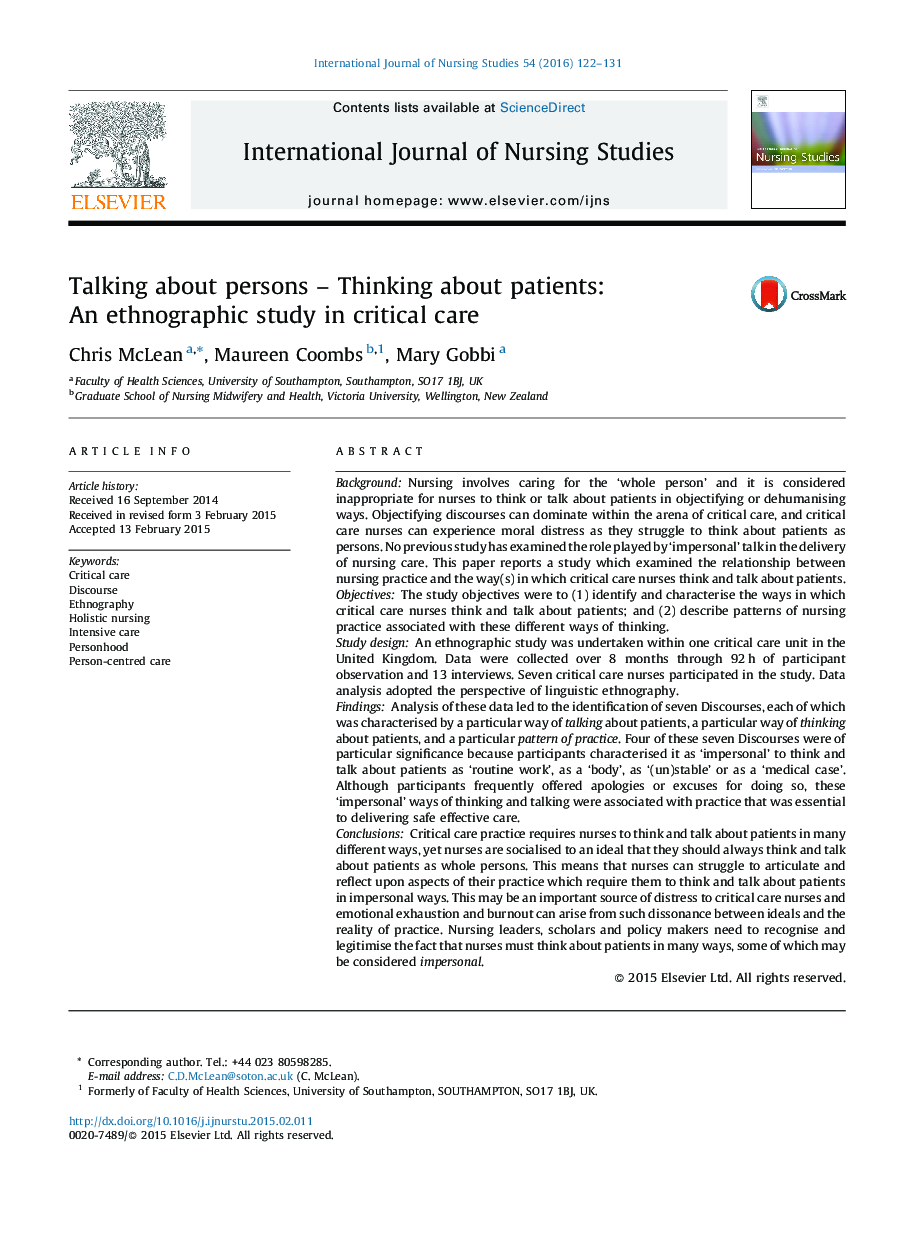| کد مقاله | کد نشریه | سال انتشار | مقاله انگلیسی | نسخه تمام متن |
|---|---|---|---|---|
| 1076126 | 1486515 | 2016 | 10 صفحه PDF | دانلود رایگان |
BackgroundNursing involves caring for the ‘whole person’ and it is considered inappropriate for nurses to think or talk about patients in objectifying or dehumanising ways. Objectifying discourses can dominate within the arena of critical care, and critical care nurses can experience moral distress as they struggle to think about patients as persons. No previous study has examined the role played by ‘impersonal’ talk in the delivery of nursing care. This paper reports a study which examined the relationship between nursing practice and the way(s) in which critical care nurses think and talk about patients.ObjectivesThe study objectives were to (1) identify and characterise the ways in which critical care nurses think and talk about patients; and (2) describe patterns of nursing practice associated with these different ways of thinking.Study designAn ethnographic study was undertaken within one critical care unit in the United Kingdom. Data were collected over 8 months through 92 h of participant observation and 13 interviews. Seven critical care nurses participated in the study. Data analysis adopted the perspective of linguistic ethnography.FindingsAnalysis of these data led to the identification of seven Discourses, each of which was characterised by a particular way of talking about patients, a particular way of thinking about patients, and a particular pattern of practice. Four of these seven Discourses were of particular significance because participants characterised it as ‘impersonal’ to think and talk about patients as ‘routine work’, as a ‘body’, as ‘(un)stable’ or as a ‘medical case’. Although participants frequently offered apologies or excuses for doing so, these ‘impersonal’ ways of thinking and talking were associated with practice that was essential to delivering safe effective care.ConclusionsCritical care practice requires nurses to think and talk about patients in many different ways, yet nurses are socialised to an ideal that they should always think and talk about patients as whole persons. This means that nurses can struggle to articulate and reflect upon aspects of their practice which require them to think and talk about patients in impersonal ways. This may be an important source of distress to critical care nurses and emotional exhaustion and burnout can arise from such dissonance between ideals and the reality of practice. Nursing leaders, scholars and policy makers need to recognise and legitimise the fact that nurses must think about patients in many ways, some of which may be considered impersonal.
Journal: International Journal of Nursing Studies - Volume 54, February 2016, Pages 122–131
